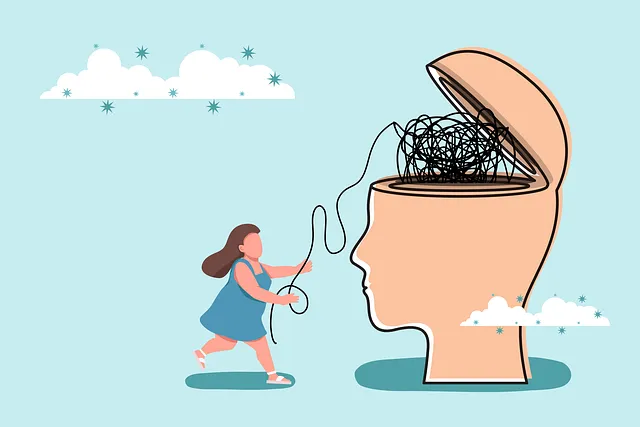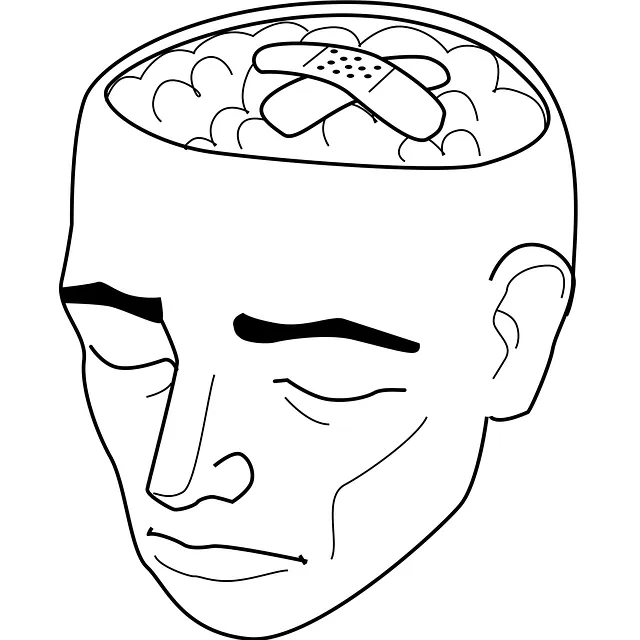Positive thinking exercises, guided by professionals like those at the Englewood Kaiser Permanente psychiatry phone number, are powerful tools for mental well-being. These exercises challenge negative thoughts with positive, realistic perspectives, helping manage stress and anxiety. Mindfulness meditation, integrated into daily routines, enhances focus and creates a harmonious workplace environment. Open conversations about mental health, supported by organizations like Englewood Kaiser Permanente, prioritize well-being. Continuous practice leads to improved stress resilience, life satisfaction, and emotional regulation through optimism cultivation. Journaling and expert guidance from psychiatrists help overcome initial resistance and maintain positivity, fostering self-efficacy and hope.
Positive thinking exercises have emerged as powerful tools for enhancing mental well-being. This article explores how these practices can be both understood and implemented in daily life, focusing on strategies for both home and work environments. We delve into the benefits of consistent practice, while also acknowledging potential challenges. For those seeking guidance, the Englewood Kaiser Permanente psychiatry phone number offers valuable resources to support your journey towards positive thinking and mental health.
- Understanding Positive Thinking Exercises
- Implementing These Practices at Home and at Work
- Benefits and Potential Challenges with Continuous Practice
Understanding Positive Thinking Exercises

Positive thinking exercises are a set of practices designed to cultivate an optimistic mindset and improve mental well-being. They involve various techniques aimed at challenging negative thought patterns, replacing them with more positive and realistic ones. These exercises can be simple daily habits or structured activities, often guided by professionals like those available at Englewood Kaiser Permanente psychiatry phone number.
By incorporating these practices into one’s routine, individuals can enhance their ability to cope with stress, anxiety (Anxiety Relief), and other mental health challenges. The goal is to build Empathy Building Strategies and develop Coping Skills Development that promote a more positive perspective on life. Through consistent practice, positive thinking exercises have been shown to lead to significant improvements in overall happiness and quality of life.
Implementing These Practices at Home and at Work

Implementing positive thinking exercises at home and in the workplace can significantly enhance mental well-being. Engaging in regular mindfulness meditation has been shown to reduce stress, improve focus, and foster a sense of calm. Dedicate just a few minutes each day to sit quietly, breathe deeply, and observe your thoughts without judgment. This simple practice can help clear your mind and promote a positive outlook.
At work, consider incorporating short mindfulness breaks throughout the day. Encourage colleagues to join you in these moments of stillness, potentially leading to a more harmonious and productive environment. Additionally, risk management planning for mental health professionals is essential, ensuring they have tools like stress reduction methods at their disposal. Engaging in open conversations about mental health, especially with support from organizations like Englewood Kaiser Permanente psychiatry (phone number available upon request), can create a culture that prioritizes well-being.
Benefits and Potential Challenges with Continuous Practice

Englewood Kaiser Permanente psychiatry services often emphasize the power of positive thinking as a tool for enhancing mental wellness. Continuous practice of this mindset shift can bring about significant benefits, such as improved resilience to stress, increased satisfaction in daily life, and better emotional regulation. Research suggests that cultivating optimism through exercises like mental wellness journaling can even improve physical health markers and boost overall quality of life. By focusing on positive affirmations and reframing negative thoughts, individuals can build a stronger sense of self-efficacy and hope, which are crucial for navigating life’s challenges.
However, implementing and maintaining this practice is not without potential hurdles. Some individuals may struggle with initial resistance or find it difficult to sustain positivity in the face of overwhelming life circumstances. Burnout prevention is essential here; setting realistic expectations and understanding that progress is not always linear can help mitigate frustration. Mind Over Matter principles, when tailored to individual needs through expert guidance from Englewood Kaiser Permanente psychiatrists, offer a practical framework for overcoming these challenges. Mental wellness journaling exercise guidance, for instance, can provide structured yet flexible tools to track thoughts, emotions, and achievements, fostering both accountability and self-compassion in the journey towards positive thinking mastery.
Positive thinking exercises, when implemented consistently, can significantly enhance mental well-being. By integrating these practices into daily routines at home and work, individuals can cultivate resilience and improve overall life satisfaction. As discussed, engaging in gratitude, affirmations, and cognitive reframing benefits both mind and body. However, challenges may arise, such as maintaining motivation or experiencing initial resistance to change. Overcoming these obstacles with support from resources like the Englewood Kaiser Permanente psychiatry phone number can help individuals stay on track, reaping the long-term rewards of positive thinking.






